Sitting in a side room of the Pure Gym in Rubislaw, Aberdeen, his walking sticks propped against the wall, Jamie Williams recalls the first time he went to a gym.
He was 14, and like many boys that age, wanted to pack some muscle onto his skinny north-east frame.
But for Jamie, who has cerebral palsy, it became much more than that. The visit turned into a life-changing experience.
He was there with classmates, but while they eventually would give up, Jamie kept going. And going and going.
The gym, he discovered, offered him a number of benefits.
First, he could indeed bulk up, and through consistent work and effort, he went from skinny to strong. Amazingly, his new strength lessened the effects of his cerebral palsy, making his walking better and his balance more controlled.
But the gym gave him something else too. It gave him purpose — and a career.
Since June, Jamie, 19, has been a personal trainer, working out of the Rubislaw gym.
It is the culmination of an ambition sparked by that first gym visit, and he works with disabled and able-bodied clients, putting them through a personalised training regime.
Like any new business, it’s been a challenge. But Jamie is committed to building up his client base, just as he did his body.
After all, he knows more than most about overcoming adversity.
“Just because I’m disabled doesn’t mean that I should be doing less than other people, right?” he says. “If anything, it means I should be doing more.”
Cerebral palsy and operations on Jamie’s legs
Jamie says there wasn’t a first time he became aware of his cerebral palsy. Growing up in Bridge of Don with parents Barry and Natalie and younger brother Kaden, his condition was something that was always there.
Cerebral palsy has a wide range of causes and symptoms, but typically happens in the womb or shortly after birth when the brain doesn’t develop.
This can be because of bleeding, an infection or from a shortage of oxygen, leading to symptoms such as weak arms and legs, uncontrolled movements or, in extreme cases, learning difficulties.
Jamie describes his cerebral palsy, which only affects him physically, as “somewhere in the middle”.
His legs are the most affected, making walking more difficult. When he was young, he says, they “were all over the place” and he relied on a wheelchair to get around.
Over the years, however, he’s had several operations on his legs. Everything from his hips, knees ankles, and Achilles — “just to place my feet into the right place to make it easier to walk”, he explains.
Along with the work he puts in at the gym, strengthening his legs and the rest of his body, Jamie’s walking is as good as it’s ever been. He still uses the chair for longer distances but he’s recently gone from two walking sticks to just one.
The goal is to ditch the sticks completely.
“I think it is possible,” he says.
How Jamie found his confidence at the gym
Jamie says he was never treated as an outcast at school, but he knew there were certain things that for him were off limits.
The gym, however, was different. He felt at home almost immediately, and it boosted his confidence in ways he’d not experienced before.
“Everyone at school, they’re playing football and I was kind of sitting in the corner,” he says.
“Whereas going to the gym, and being the only one that stuck to it, that was my thing to do.”
Over time, as his body grew, others in the gym started noticing him not because of his disability but because of the progress he was making.
“When I started seeing results, as I did because I was really skinny before, you get credit in other places,” he explains. “You get noticed not for being disabled but for going to the gym.”
Meanwhile, his time in gym germinated a new ambition — to become a personal trainer. Aged 17, he enrolled in a health and fitness HND course at NESCOL (North East Scotland College) in Aberdeen.
“I had a clear vision in my head of what I wanted to do,” he says.
Four months ago, he started at the Pure Gym in Rubislaw.
He has mandated hours during which he helms the gym’s scheduled classes or helps out with keeping the space clean.
The rest of the time he’s working with his clients or drumming up new business.
“It’s a lot of hard work,” he says.
“But it pays off. I hate being told what to do and I could never work a nine to five. I need the freedom.”
Jamie is one of a handful of PTs with cerebral palsy
What Jamie has achieved in becoming a personal trainer is, by any measure, remarkable. The number of PTs with cerebral palsy in the country is not an easy figure to come by, but it is small.
One of the few is another Aberdonian — Jay Moir, from Kincorth, who mixes working for Sport Aberdeen with an acting career.
Not that Jamie was inspired by Jay; he’s never even heard of him.
In fact, Jamie says he wasn’t inspired by any disabled athletes growing up. What’s more, Jamie really doesn’t see himself as special at all. Which, of course, makes him even more special.
“We all have our sob story,” he says. “But everyone’s born equal so you can achieve whatever you want to achieve, that’s what I go by.”
The attitude comes from himself, but also from his parents who instilled in him a strong sense of independence. He didn’t grow up blind to his disability, but he was taught never to feel sorry for himself.
“My dad, especially, he’d always be on my case,” he says, laughing. “I’d hate it at the time, don’t get me wrong, but everyone needs something like that.”
‘I do this to help people’
He grew up with the conviction that anyone can improve themselves through hard work at the gym.
“It can completely change your mindset,” he says.
But don’t try to brand Jamie an inspiration.
“I do this to help people, not to inspire people,” he says. “I don’t like that word.”
Why?
“I know I have inspired people,” he clarifies, “which is great. But I just see myself as a kind of average guy. I don’t want to use my disability to get likes and comments – it’s not what it’s about.”
He still gets plenty of likes on Instagram and TikTok, where he posts updates on his life as a personal trainer.
Unfortunately, not all of the comments are as positive.
“I’ll make a video on top tips for growing your shoulders, and people will go, ‘You got any leg tips?’,” Jamie says.
He shrugs it off, though — “It’s all adds to the engagement,” he says with a wide smile.
It’s a built-in function of his personality not to feel sorry for himself, a lesson he learned from his parents and one, despite his reluctance to inspire, he wants to pass on to other disabled people.
“I know what they can achieve,” he says.
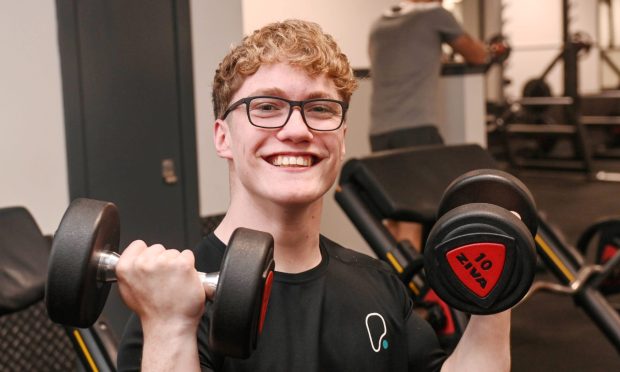
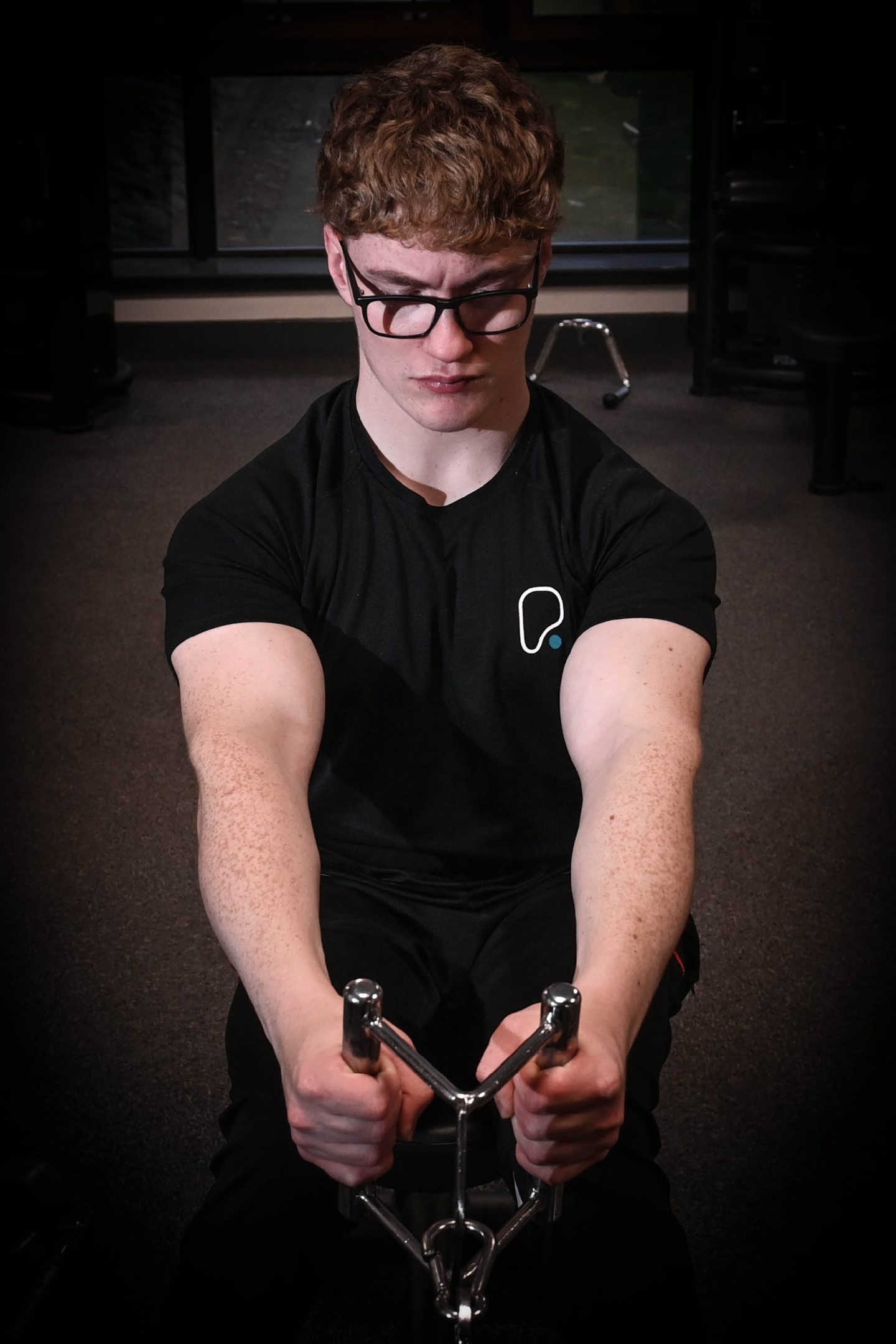
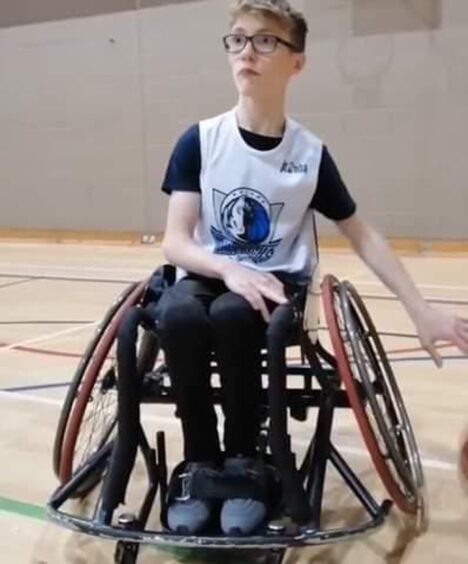
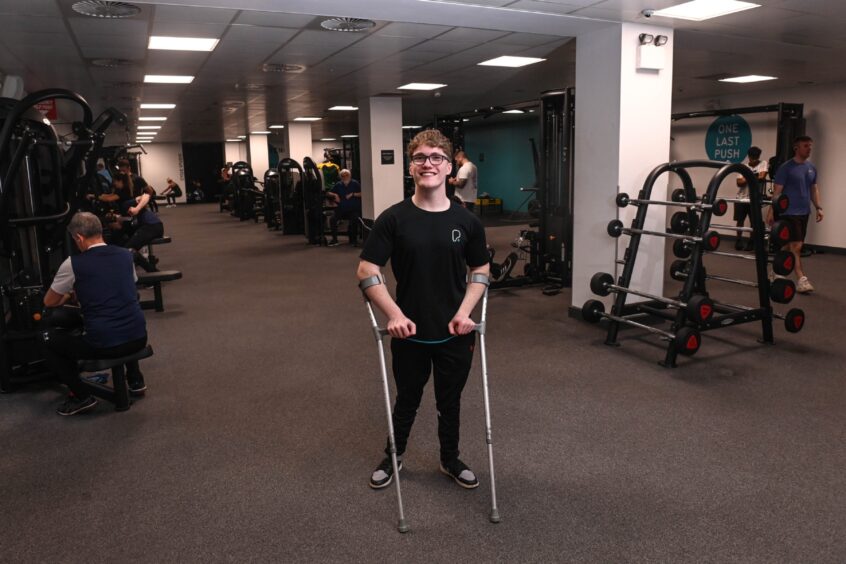
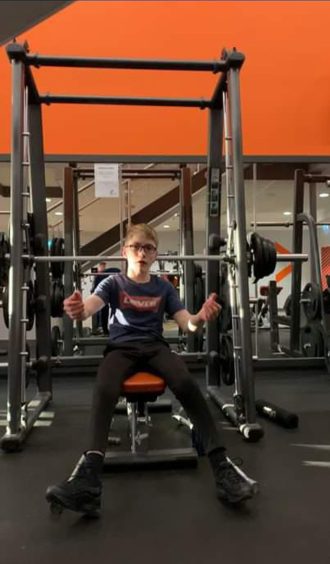
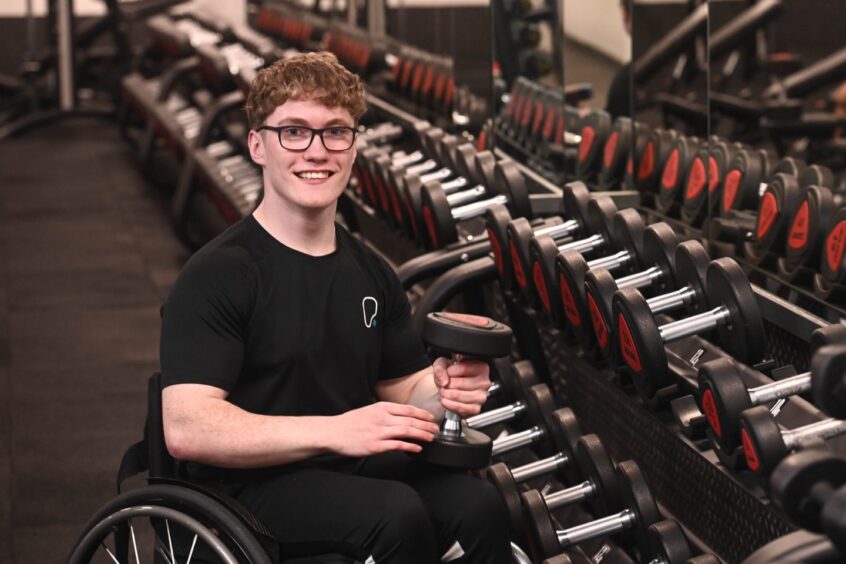
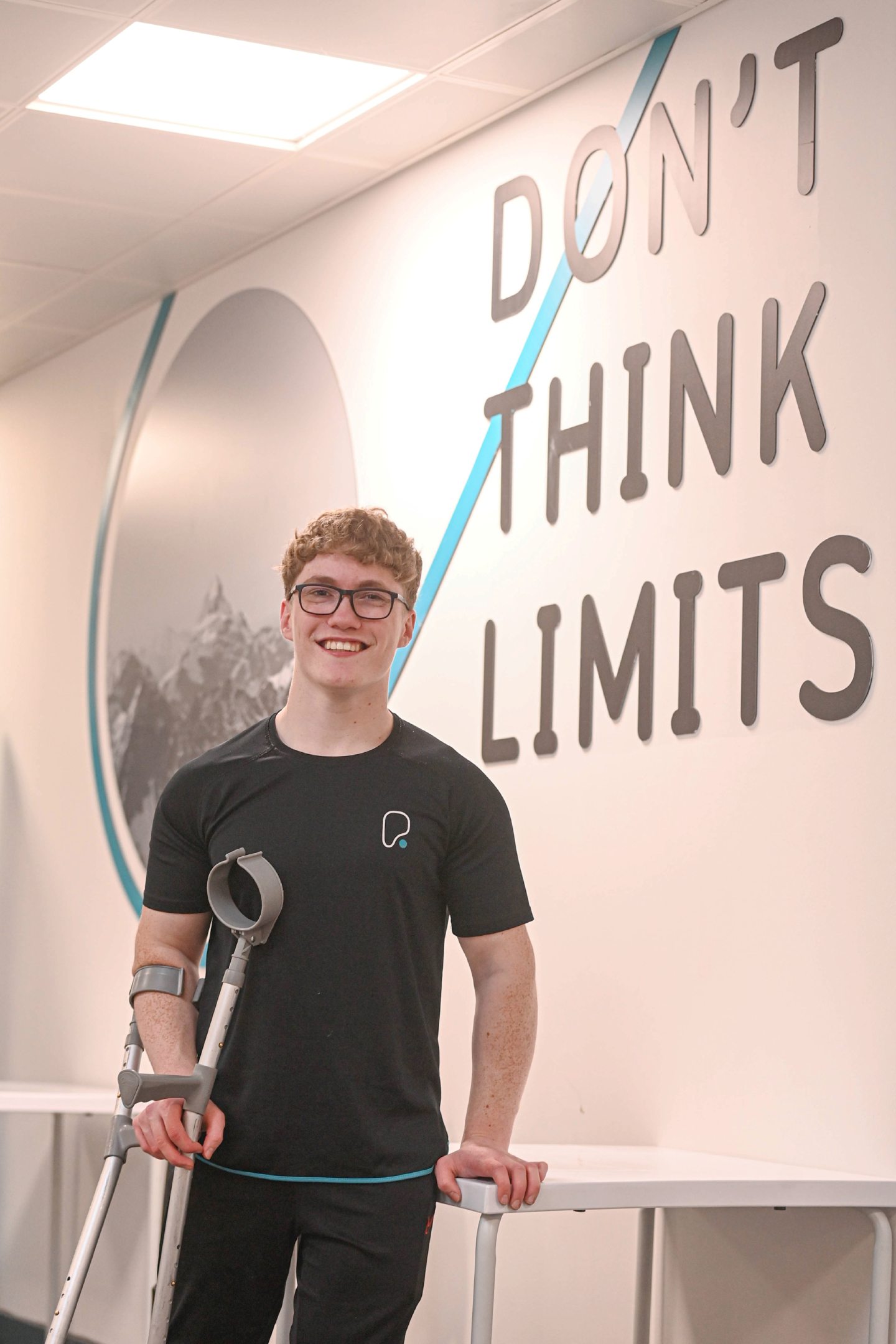
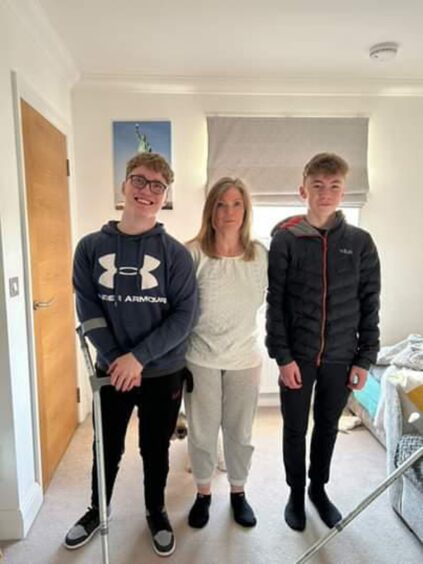
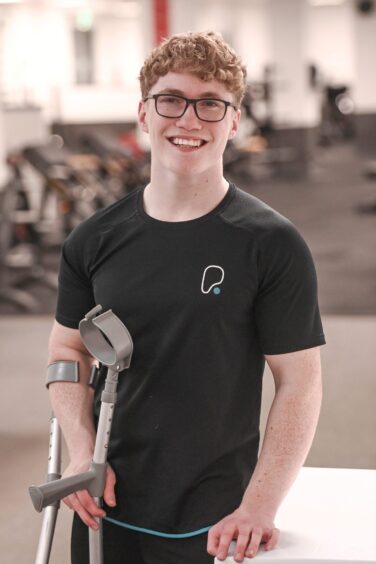
Conversation